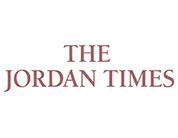Read the full article at the Jordan Times here
AMMAN — Jordan will host experts from 22 countries for a global nursing and midwifery summit on Monday under the patronage of HRH Princess Muna, organisers said.
The summit is the initiative of the Columbia Global Centres in Amman and New York’s Columbia University School of Nursing.
In a joint statement released on Tuesday, the institutions noted that nurses and midwives are the backbone of healthcare systems worldwide.
“To address large global health disparities, the development of a robust nursing and midwifery profession needs to be a critical goal in regions with challenged human resources for healthcare services,” the statement said.
Jennifer Dohrn, director of the Office of Global Initiatives at Columbia University School of Nursing, said that nursing and midwifery leaders from across the Eastern Mediterranean are expected to map out how to improve people’s health throughout the region.
“Providing healthcare to the large number of people in the midst of war and political upheaval in the Eastern Mediterranean region is especially urgent,” the statement quoted Dohrn as saying.
“This summit is timely in light of the Syrian refugee crisis, one of the worst humanitarian emergencies in decades,” she added, according to the statement.
Professor Safwan Masri, director of the Columbia Global Centres in Amman, said staying focused on basic human needs is often forgotten in the midst of turmoil and instability.
“Bringing experienced voices from the nursing and midwifery field to the forefront of the regional discourse on healthcare is instrumental in supporting the improvement of services available on the ground,” Masri was quoted as saying in the statement.
The overall aim of the summit is to identify regional clinical nursing and midwifery research priorities and an action plan to go forward, the statement said, adding that it is vital to understand current nursing and midwifery care needs in order to improve global health.
“As nurses and midwives move the agenda forward towards universal health coverage, our profession needs expanded evidence to direct our care,” Dohrn added.
